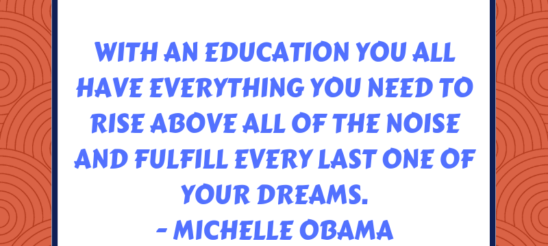Fury in Manchester as black teenagers jailed as result of Telegram chat
Four friends convicted of conspiracy offences were found ‘guilty by association’, say their supporters
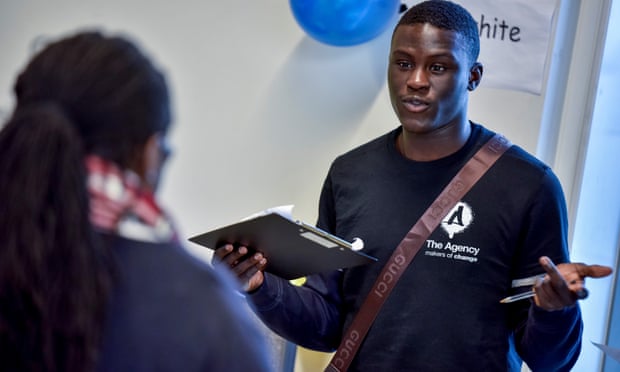
Helen Pidd North of England editorFri 1 Jul 2022 18.29 BST
A teenager considered such an inspirational youth leader he was invited to address MPs in parliament is among 10 young black men to have been jailed after being convicted of being part of a violent conspiracy.
But the convictions have caused huge controversy, with race justice campaigners saying some of the teenagers were found “guilty by association”.
The case has prompted a protest march and a campaign which led to more than 500 people offering mentoring, therapy and tutoring to those convicted.
Ademola Adedeji, 19, and three friends from Moston in north Manchester were each sentenced on Friday to eight years in prison for conspiracy to cause grievous bodily harm. They were jailed for taking part in a private group chat on the Telegram messaging app a few days after the murder of one of their friends.
Kids of Colour, a youth justice organisation which organised the march and the mentoring offer, said the case showed evidence of “thought policing”.
It said innocent young people had been criminalised for sending immature messages in the throes of grief, messages which were misinterpreted as proof of violent intent.
Most of the 10 young men attended the same school in Moston. They were convicted of plotting violent revenge for the killing of their friend — a 16-year-old aspiring rapper called Alexander John Soyoye, who performed drill music under the name “MD”.
None of those named as targets in the Telegram chat were hurt, though three of the defendants went on to violently attack two other boys using machetes and a car as a weapon.
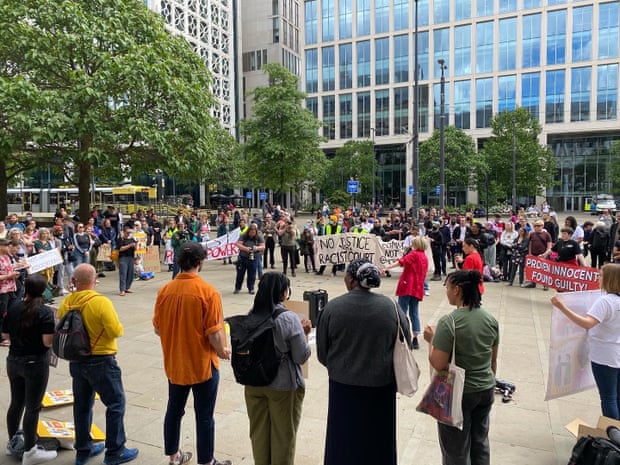
Sentencing them on Friday, the judge, Mr Justice Goose, said the case involved two rival gangs, the M40 from Moston and the RTD gang from Rochdale and Oldham.
“It was played out in social media and through drill rap music, with threats of violence, the display of weapons, including firearms, machetes and crossbows. Entering the territory of one gang was treated as provocation, to be met by violence or the threat of violence,” he said.
The defendants denied being in a gang, insisting M40 was a drill music collective in which some of them rapped. The jury was shown YouTube videos featuring some of the teenagers rapping and posturing in Moston with their faces covered.
Four of the defendants had nothing to do with the M40 music group, beyond having watched one or two of their videos.
Among them was Adedeji, who was described by his youth worker as “a truly exceptional young man”. He was head boy at his school and had produced a book profiling inspiring young black people in Moston.
The book, called Something to Say, prompted his invitation to parliament in 2019, when he was 16. He had an unconditional offer to study law at Birmingham University, received while on bail.
Adedeji’s coach at the Salford Red Devils youth rugby league team said he was “the type of star pupil we look for to go into the big leagues and hopefully on to the England squad”. At weekends, the teenager was a care worker for people with dementia.
His best friend, Raymond Savi, also 19, came from “the most loving family you can hope for”, his lawyers said. He had distinctions in his studies and a place at Salford University to study accounting.
Another of their friends, Azim Okunola, 19, was just about to finish his computer science and artificial intelligence degree with first-class honours when he was convicted, having completed the course in two years instead of three.
A further friend, Omolade Okoya, 19, was studying public services at college, with hopes of one day working for the police, ambulance or fire service.
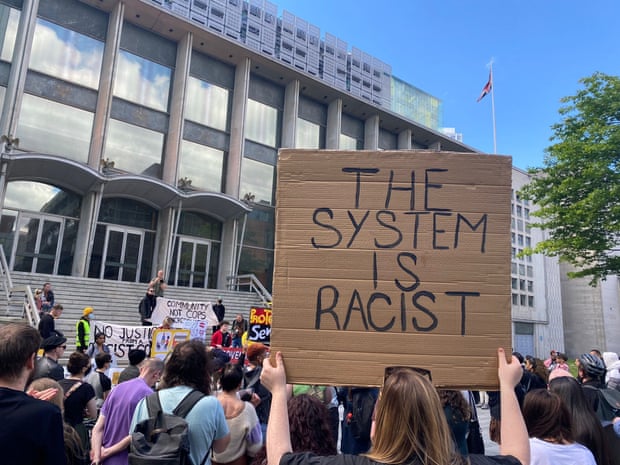
None of those four will achieve their ambitions anytime soon. The public gallery was packed with their friends and family members who sobbed as sentences of eight years were handed down, with one boy’s father shouting: “Racists!”
Adedeji, Savi, Okunola and Okoya were all convicted on the basis of a series of messages posted on a group chat called “MDs World [crying emoji]” in a few hours on 8 November 2020, three days after Soyoye was murdered.
None of the four had any weapons, nor took part in any violent acts or “scoping missions” to locate individuals to be targeted for violence.
Yet a jury found them guilty of taking part in a conspiracy spanning three months which included at least two violent attacks committed by other defendants. The prosecution said their role in the conspiracy was identifying who should be attacked and obtaining information about their whereabouts.
The incriminating Telegram chat was set up by another defendant, Jeffrey Ojo, shortly after Soyoye was fatally stabbed by members of the RTD gang. Four of the defendants – Harry Oni, Brooklyn Jitobah, Martin Junior Thomas and Simon Thorne – were there when Soyoye was murdered. Thorne and Thomas were also jailed eight years.
They took part in a street fight with 13 youths from the RTD gang involving machetes and metal pipes but ran away, leaving Soyoye to bleed to death alone. He had been stabbed 15 times, including in the perineum.
The prosecution said it was the “guilt and shame” of knowing they had run away and left Soyoye to die that prompted them to seek violent revenge.
The prosecution said the Telegram chat showed the 10 plotting to get their revenge, picking out targets.
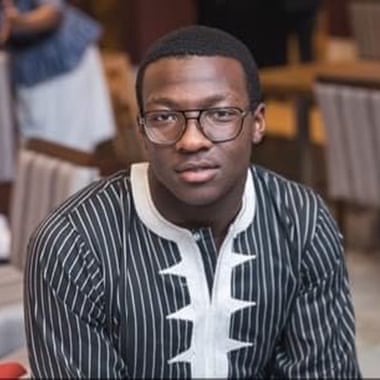
Adedeji contributed 11 out of the chat’s 345 messages. One saw him pass on the postcode of one of Soyoye’s killers. They were never attacked but were ultimately convicted of Soyoye’s murder.
Savi also wrote 11 out of the 345 messages, taking part in the chat for 14 minutes. In one post, he suggested “napping” (kidnapping) the cousin of one of Soyoye’s killers and taking his phone away so that he could not contact others.
Savi’s defence was that he was not making serious suggestions and had no idea that any actual violence might take place as a result. In the event, no one was ever kidnapped as part of the conspiracy.
Oni, Jitobah and two others – Jeffrey Ojo and Gideon Kalumda – were found guilty of conspiracy to murder. Oni, Ojo and Kalumda were sentenced to 21 years. Jitobah received a 20-year sentence.
Roxy Legane, the director of Kids of Colour, said the case was the latest in a series of trials which had seen large groups of often black boys imprisoned for who they know.
“This is a case of guilty by association because, once again, the harms of a small minority have drawn in a much wider net for prosecution,” she said.
“For these 10 boys, it is their knowing each other, whether through school or church, that has been manipulated to draw them closer together, and draw broader conclusions about what their knowing each other amounts to.
“Their associations become evidence of guilt. Shared schools, social media friendships, music interests, messaging groups and, of course, sharing being black has been used to frame them as a criminal gang.”
She said the private messages used to bolster a gang narrative were in fact “thoughtless, immature, emotional messages” which “became criminal, became intent: it feels like thought policing”.
The case was tried under conspiracy legislation, which came into law long before the age of mobile phones and social media. It has similarities with crimes prosecuted as “joint enterprise”, a common law doctrine where an individual can be jointly convicted of the crime of another, if the court decides they foresaw that the other party was likely to commit that crime.
But the judge stressed: “The defendants were not in a joint enterprise; they were each principal parties playing a full role in committing the offence of a criminal conspiracy either to kill others or to intentionally cause them grievous bodily harm.”
… we have a small favour to ask. Millions are turning to the Guardian for open, independent, quality news every day, and readers in 180 countries around the world now support us financially.
We believe everyone deserves access to information that’s grounded in science and truth, and analysis rooted in authority and integrity. That’s why we made a different choice: to keep our reporting open for all readers, regardless of where they live or what they can afford to pay. This means more people can be better informed, united, and inspired to take meaningful action.
In these perilous times, a truth-seeking global news organisation like the Guardian is essential. We have no shareholders or billionaire owner, meaning our journalism is free from commercial and political influence – this makes us different. When it’s never been more important, our independence allows us to fearlessly investigate, challenge and expose those in power.
Credits: https//www.theguardian.com
GCSE exams 2019: Five pitfalls to avoid

Whatever subject you teach, you will already be well into your preparation for this summer’s GCSE exams. Here, a member of AQA’s relationship management team (Gail Nielen).
Give adequate weight to all assessment objectives
In GCSE science, for example, many schools are strong on AO1 (“Demonstrate knowledge and understanding of: scientific ideas; scientific techniques and procedures”), but less strong on AO2 (“Apply knowledge and understanding of: scientific ideas; scientific enquiry, techniques and procedures”).
In GCSE science, for example, many schools are strong on AO1 (“Demonstrate knowledge and understanding of: scientific ideas; scientific techniques and procedures”), but less strong on AO2 (“Apply knowledge and understanding of: scientific ideas; scientific enquiry, techniques and procedures”).
Perhaps that’s why some students took to Twitter after their exams last summer, complaining that they’d been asked a question about osmosis using carrots, when they’d used potatoes during the course.
Practise the more ‘general’ questions
Students commonly struggle the most with the less “structured” elements of exam papers – these are often the questions they will need to practise most.
In MFL, for instance, students are usually well prepared for the role-play and photo-card tasks in the speaking test, but they often struggle with the general conversation. But half the marks (30 out of 60) in the speaking assessment are for the general conversation, so it’s really worth spending time on this, using strategies to help students stretch their vocabulary and range of language.
Get the tier right
Writing recently in Tes, our head of curriculum strategy offered some adviceabout how to do this. Looking at how students perform on questions that are common between the tiers can be a good guide to help you make these difficult decisions.
It’s also worth thinking carefully before changing your strategies. Maths teachers have generally made the right tier decisions over the past two summers. However, we’ve heard from a number of schools that had good success in 2017 and so increased their higher tier entry last summer – only to see a significant drop in outcomes as a result.
Make the most of mock-exam support
That’s why it pays to make mocks as effective as possible. Exam boards have a lot of resources to help you with this, but it’s not just past papers. Make sure you familiarise yourself with the resources offered by your board and really make the most of them.
Know your key deadlines
The school year is busy, so you really need to be on top of your key dates for GCSEs. Here are some upcoming dates to be aware of:
- 31 January 2019: the last date to request modified papers for pupils who are partially sighted.
- 21 February 2019: the deadline for entries for summer 2019 exams. This is also the final date to process applications for access arrangements.
- 21 April 2019: the last date to change tiers (free of charge) for all tiered subjects (MFL, maths and sciences).
Tougher GCSE exams in England

The Department for Education (DfE) analysis of last summer’s GCSE examsfound the gap between disadvantaged pupils and others at secondary school grew by 0.6 percentage points, after two years in which it had narrowed.
While disadvantaged pupils showed an improvement in the proportion gaining a grade 5 – previously a C – in the compulsory subjects of English and maths, others made more rapid progress, causing the gap to widen. Just over half of all other pupils gained a 5 or above in English and maths, but fewer than one in four disadvantaged pupils did the same.
Who cares about education in Nigeria?
The concern about the current shutdown of most public universities relates to the effects on the individuals directly affected (the students), the international perception of the Nigerian university system, as well as the implications for disrupted calendars and synchronisation of our university calendar with other international universities.
The students would be affected in various ways, including extended/unknown graduation dates, suspended plans/ambitions for those who may wish to start work or go for further studies or some other personal/family plans.
The education of tens of thousands of children has been damaged by academy failures
MPs have also questioned the ability of the Education and Skills Funding Agency (ESFA) to control academies’ executive pay awards following a series of high-profile scandals.
The report said the DfE should ensure that academy trusts were sufficiently transparent and accountable to parents and communities.
Its conclusions follow increasing concern over the academies programme, which began in 2000 under Labour but has been widened by the Conservatives.
Meg Hillier, the chair of the committee, said the education of many pupils had been badly affected.
“We have seen the troubling consequences of poor governance and oversight of academy trusts,” she said.
“Parents and the wider community are entitled to proper access to transparent information about their local academy schools.”
THE’s University Rankings 2019
Higher education institutions in Africa have moved up university rankings. This is according to the 2019 Times Higher Education Emerging Economies University Rankings.
According to the rankings , compiled by Times Higher Education, African countries were better represented than in previous years. Egypt holds the position as the most represented African nation on the ranking, while the highest ranking African institution on the table is in South Africa.
The list ranks 442 universities from 43 countries, across four continents. The rankings use the same 13 performance indicators as the World University Rankings to judge institutions on their teaching, research, knowledge transfer and international outlook. But these indicators are recalibrated to reflect the development priorities of universities in emerging economies.
UNILAG TV begins operations tomorrow
Babalakin spoke on Tuesday at a briefing on UNILAG TV at the university’s Senate building, where January 17 was announced as the day the station would begin operation on StarTimes’ Channel 184.
He said, “I hope this station will be the centre of very interesting discussions. I am hoping that it will be a centre of correct and accurate news and will begin the end of fake news in Nigeria.
“We are hoping that it will bring back the vibrancy of intellectual discourse and become a great centre. I really look forward to you providing what is missing today.
“A lot of TV stations have done very well, but I believe there is room for a TV station that will acquire the reputation of being a source of the most outstanding intellectual discourse. I want UNILAG TV to always bring together the leaders of opinion, the most resourceful people and the most intellectual people in every area to discuss issues.”
New leader for education policy
The new leader for education policy in the Georgia Senate is a Gwinnett County lawmaker with little background in K-12 policy but a keen interest in a condition thought to afflict one in five students.
.jpg)
Sen. P.K. Martin, R-Lawrenceville, previously served as vice chairman of the Senate’s Higher Education Committee. (In a bit of a swap, the former K-12 committee chairman, Sen. Lindsey Tippins, R-Marietta, who stepped down from leadership over a policy dispute last year, has now been made head of the Higher Education Committee.)
Vacancies 2019
We are hiring for a Nursery/Primary School in Ikoyi, Lagos

Education gets N620.5bn against UNESCO’s advice
The executive summary of the proposals, according to The Punch check on Thursday in Abuja, showed that the education sector got N620.5bn (about 7.05 per cent), marginal raise over the total of N605.8bn budgeted for the sector in 2018.
Over some years, the country’s funding for education continued to rotate between five per cent, six per cent and seven per cent of the national budget.

